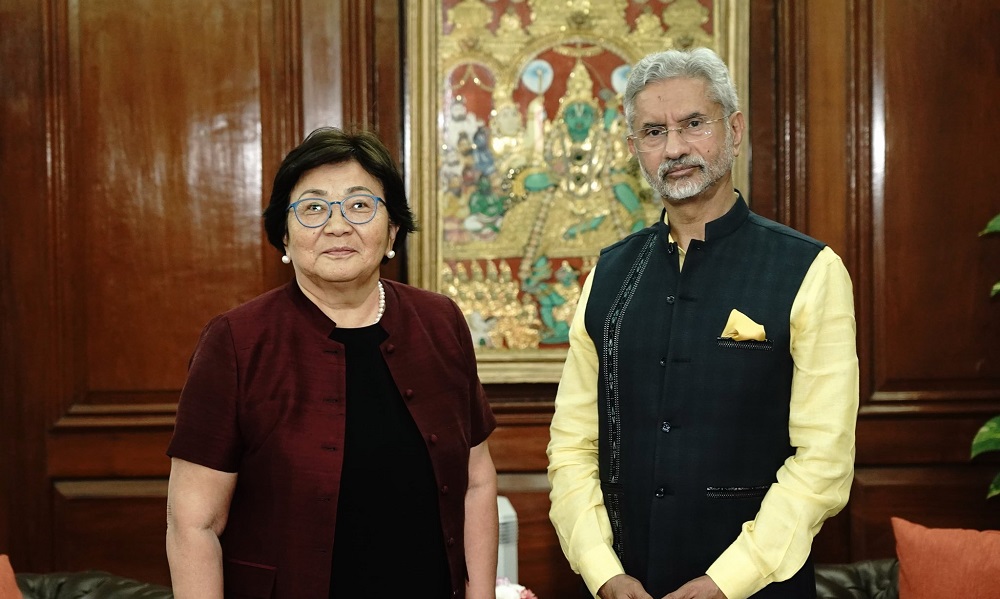Latest News
Media watchdog reports a sharp increase in violence against journalists

The Afghan Journalists Safety Committee said Thursday that it recorded 132 threats and violence against journalists in 2020 – a 26 percent increase compared to 2019.
This includes the death of seven journalists and media workers. Five were killed as a result of targeted killings and two with IEDs.
The AJSC said in its annual report, released Thursday, that this reports the worrying state of journalists safety and press freedom in the country.
“The rise in violence particularly the targeted killing of journalists has generated extensive fear among media workers, reduced media outlets’ content production capabilities, and expanded self-censorship,” the committee said.
The organizations stated that Afghanistan has reached a historically critical juncture and that although recent rounds of peace negotiations have caused some hopes that an end to the four-decade conflict may be in sight, the surge in violence – especially the targeted killing of journalists and civil society activists – has cast serious concerns over whether peace talks will succeed and whether core values enshrined in the constitution on freedom of expression and civil liberties will be protected if peace talks lead to a political settlement.
“The dramatically increased levels of direct attacks and assassinations of journalists at the end of 2020 has created widespread panic among media outlets and journalists across Afghanistan.
“These attacks have had a noticeably adverse effect on impartial and objective reporting, with many journalists admitting to reconsidering both how and whether to report on certain topics for fear of reprisal – effectively amounting to the increasingly widespread practice of self-censorship,” the AJSC said in a statement.
In addition, the economic impact of Covid-19 has compounded existing financial challenges for media outlets, often frustrating their efforts to raise sufficient funds, and thereby their capacity to generate media content.
The AJSC said media and civil society groups remain concerned that the delegation representing the Afghan Republic in negotiations with the Taliban in Doha, Qatar lacks a coherent strategy to preserve key constitutional rights including freedom of speech and a free and independent media.
“The Taliban’s ideological opposition to these values enhances concerns about the future of such freedoms. Further, the government’s efforts in early 2020 to draft a new Media Law, which could extensively limit press freedom if enacted, and the lack of meaningful commitment to investigate the cases of murdered journalists have fueled these concerns,” the statement read.
The report states that in 2020, AJSC recorded threats and violence against 132 journalists and media workers, which includes killing of journalists, injuring them, physical assault, kidnapping, various forms of threats, theft, verbal, legal and administrative abuse.
“2020 data shows 26 percent increase in violence and threats compared to 2019 in which AJSC recorded violence and threats against 105 journalists and media workers,” the statement read.
In addition to the seven journalists and media workers killed, 18 journalists and media workers were injured whilst reporting and on duty.
Another 10 journalists were physically assaulted, 47 threatened, 28 verbally abused and 13 journalists and media workers faced legal and administrative abuse by media managers.
Seven journalists were kidnapped and two experienced theft while gathering content from the field.
The AJSC said that based on data collected, Taliban and Daesh account for the majority of violence and threats against journalists. Government officials come second.
Latest News
IEA urges World Bank to resume work on 7,000 incomplete projects

Officials at the Ministry of Rural Rehabilitation and Development (MRRD) say 7,000 incomplete projects of the World Bank are at risk of destruction in Afghanistan. They call on the World Bank to resume the work of these projects.
According to them, discussions have been held with the World Bank about these projects, but there has been no result yet.
“7,000 incomplete projects are being destroyed, and if the work is not started, these projects will be destroyed. We ask the World Bank to resume the work of these projects as soon as possible,” said Noorul Hadi Adel, the spokesperson of MRRD.
Meanwhile, members of the private sector also ask international institutions to resume their work in Afghanistan.
According to the officials of this sector, with the start of these projects, job opportunities will be provided for thousands of people in the country.
“These projects create employment for our people and the country will grow a lot,” said Mirwais Hajizadeh, a member of the private sector.
However, economic experts stated if the work of these projects does not start soon, they will be destroyed and the investments made in them will be wasted.
Latest News
Ten people killed by floods in Helmand

Ten people have been killed and six others injured by floods in Helmand province in the past week, local officials said on Friday.
According to officials, seven of those were members of the same family, and they were killed in Kajaki district last night.
“Most of the people moved from vulnerable areas to high lands and mountains, and thanks Allah the number of casualties is low,” Sher Mohammad Vahdat, the head of information of the Directorate of Information and Culture in Helmand, said adding rescue teams and security forces have been dispatched to help people.
It is said that the telecommunication system has also been disrupted due to the effect of floods in Kajaki district. Floods have also destroyed thousands of acres of agricultural land.
Latest News
UN envoy meets Indian foreign minister to discuss Afghanistan

Roza Otunbayeva, the UN Secretary General’s Special Representative for Afghanistan, met with the Indian Foreign Minister Subrahmanyam Jaishankar in New Delhi and discussed issues related to Afghanistan, it was announced on Thursday.
During the meeting, Otunbayeva thanked India for “its critical humanitarian support and longstanding friendship for the Afghan people” and discussed the importance of regional and international cooperation to address prevailing challenges in Afghanistan, UNAMA said on X.
Jaishankar also said on X that the sides exchanged views on the current situation in Afghanistan.
“Underlined that India has provided wheat, medicines, pesticides and school supplies. Appreciate the role of UN agencies as partners in these endeavors,” he said.
-

 Sport4 days ago
Sport4 days agoACL fever grows as fixtures finalized
-

 World5 days ago
World5 days agoUS will not take part in any Israeli retaliatory action against Iran
-

 Latest News5 days ago
Latest News5 days agoOver 50 people dead in traffic accidents over Eid
-

 Latest News4 days ago
Latest News4 days agoUS identifies Kabul airport suicide bomber
-

 Business4 days ago
Business4 days agoAfghanistan-Kazakhstan chamber of commerce opens in Herat
-

 Latest News5 days ago
Latest News5 days agoGood rains enable DABS to increase power production in Kabul
-

 World4 days ago
World4 days agoIsraeli military vows response to Iran attack as calls for restraint mount
-

 Sport3 days ago
Sport3 days agoATN secures exclusive rights to broadcast Paris 2024 Olympics
























